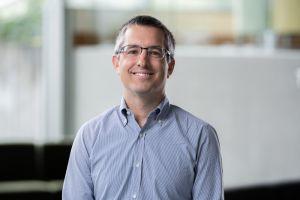- Ph.D., Economics, Boston University, Boston, M.A., 2010
- M.A., Economics, University of California, Davis, 2003
- B.A., Economics, University of California, Davis, 2003
- Development Economics
- Poverty and Inequality
- Microeconomic Theory
- Passing the Message: Peer Outreach about COVID-19 Precautions in Zambia. Journal of Development Economics, 2024
- The Role of Credit Reports in Digital Lending: A Case Study from Mexico, Oxford Review of Economic Policy, 2024
- Fertility Responses to Schooling Costs: Evidence from Uganda’s Universal Primary Education Policy, Economic Development and Cultural Change, 2022
- The Economics of Savings Groups, International Economic Review, 2021
- Does Group Inclusion Hurt Financial Inclusion? Evidence from Ultra-Poor Members of Ugandan Savings Groups, Journal of Development Economics, 2017
- Global Development Network grant for “Financial inclusion and business development of marginalized households: the case of Village Savings and Loan Associations (VSLAs) in Uganda,” with Andrea Canidio, 2013
- Equality Development and Globalization Studies grant for “How does mobile money affect adopter’s social networks?” with Cynthia Kinnan and Silvia Prina, 2013
- Institute for Money, Technology, and Financial Inclusion for “How does mobile money affect adopter’s social networks?” with Cynthia Kinnan and Silvia Prina, 2013
- Junior Faculty Award, University of Oregon, 2011
- Graduate Fellow, Pardee Center, Boston University, 2009-10
- Graduate Research Abroad Fellowship, Boston University, 2008
- Research Fellow, Economics Department, Boston University, 2006, 2008, 2009
Alfredo Burlando is Associate Professor in the Department of Economics at the University of Oregon, an affiliate of the Center for Effective Global Action (CEGA), and an affiliate at the Abdul Latif Jameel Poverty Action Lab (J-PAL). He received his Ph.D. in Economics from Boston University. His academic research employs randomized control trials to study the impacts of financial inclusion interventions in sub-Saharan Africa and Latin America. His current work focuses on consumer financial protection issues in the context of digital microcredit; the impact of savings groups; the digitization of financial services; and the role of traditional political power structures in fostering financial inclusion. He is also an investigator in a new multidisciplinary program studying the ethical conduct of randomized trials in Africa. His past work includes research on human capital accumulation and the disease environment in Africa.

